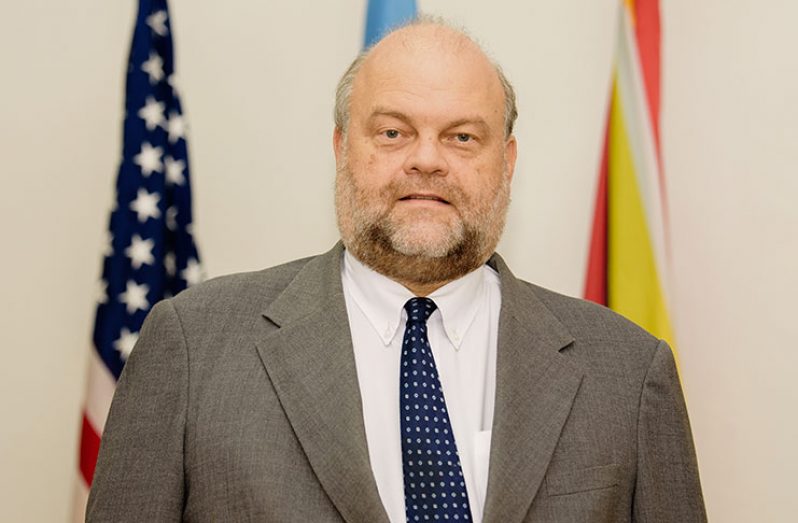– U.S. ambassador
AMID discussions on cash transfers of US$5,000 per household, U.S. Ambassador to Guyana Perry Holloway believes that oil revenues would be better spent on education, healthcare and creating a secure living and working environment for Guyanese.
While he did not rule out the option of cash transfers, he told members of the media that once proper social services are in place, persons would make money and prosper.
“I think the focus should be more on the things that the government could do to provide the young people with the skills and knowledge to be successful,” said Holloway.
The ambassador believes that in other countries, the money was best spent when it is focused on the poorest of the poor.
According to reports, Guyana is set to become a significant petroleum producer with proven reserves in excess of 3.2 billion barrels. The first phase of petroleum production is due to begin in 2020 with an estimated 450 million barrels.
Ambassador Holloway said it is up to the government to decide how the revenue will be spent and even if the decision is to do cash transfers, he believes that it should be done in a focused way.
Finance Minister Winston Jordan said that if the cash-transfer approach was to be adopted, then extreme caution must be employed, a view shared by Natural Resources Minister Raphael Trotman.
He had told reporters in the corridors of Parliament, that conditional cash transfers are not new to Guyana. He said over the years, there have been such transfers which targeted education. He pointed to the national school-feeding programme and the uniform vouchers that students in the public school system receive.
“I must admit to you, I would have a difficulty if Cabinet were to agree to it and in the implementation it wasn’t properly structured,” said the finance minister, who noted that rather than giving citizens US$5000 as hypothetically suggested by economist, Professor Clive Thomas last Sunday in Buxton, issues within critical sectors should be examined.
“Why not look at issues such as education, health, youth programmes, small businesses… teaching a man to fish and then he could do it for a lifetime, rather than giving him a fish when he could only feed himself for a short while,” Jordan suggested, while noting that the matter has not yet reached the level of Cabinet.




.png)









